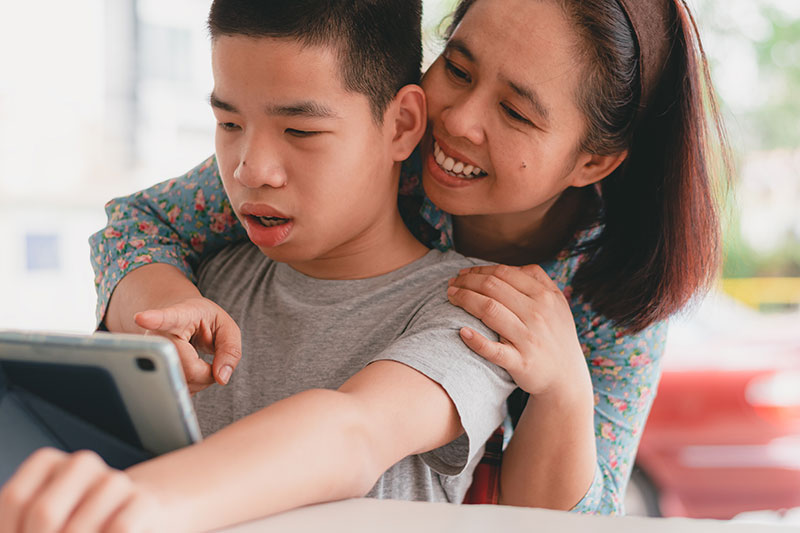
This resources covers:
- What is Positive Behaviour Supports (PBS) in the NDIS
- How to get funding in your NDIS plan for it
- Who delivers PBS
- Can I use non registered NDIS providers to deliver it?
What is Positive Behaviour Support (PBS) and how can you get NDIS funding for it?
Positive Behaviour Support aims to understand why challenging behaviours occur in children and young people (under 18). The approach makes difficult behaviour unnecessary by removing the things that trigger, encourage or reward that behaviour.
It is based on an assessment of the social and physical environment in which the behaviour happens, includes the views of the individual so that the person’s needs can be met in better ways.
It also teaches children alternative and more appropriate behaviour to replace the difficult behaviour and helps avoid extreme behaviour management measures like restrictive practices (aims to stop a person’s challenging behaviour at the time of behaviour.)
Typically a Behaviour Support Plan is created where families work with a group of people including school staff, parents/guardians or carers and a practitioner on a detailed plan to remove or minimise the triggers of the problem behaviour and, wherever possible, stop any accidental rewards for the behaviour.
Once they have a plan, parents can teach and encourage the child to use new skills and alternative, appropriate ways of communicating with others to express wants and needs and then implemented with the help of a Behaviour Support Practioner.
So how to make sure you have NDIS funding to implement PBS?
Kim MCMurchy, Plan Manager at Plan Hero Plan Management gave us the following tips:
The participant needs funding under “Improved Relationships” in their NDIS Plan.
Specifically, this funding will appear in:
- Specialist Behavioural Intervention Support
- Behaviour Management Plan Incl. Training In Behaviour Management Strategies
In order to get this, they need to articulate this need in GOALS relating to:
- emotional regulation,
- improving communication skills and
- improving behaviours and relationships
For example:
"I want to be able to manage my behaviours so that I can build relationships"
"I want to be able to regulate my emotions so that I can be more social and communicate better with others"
"I want to be able to regulate my emotions and self manage my reactions and behaviour"
"I want to be able to express my self and engage confidently with others"
There is usually funding to develop a Behaviour Management Plan and then for someone to implement and/or train other people to put those strategies in place.
If the relevant funding is not on the person’s plan, a plan review can be requested. An Allied Health Practitioner will need to provide evidence as to why PBS is needed; e.g. restrictive practices in place, challenging behaviors are impacting safety and/or participation in everyday activities. The NDIS may want evidence to support this decision making.
Can I use non-registered NDIS providers to deliver PBS?
Behaviour Support Practitioners need to be registered as an individual with the NDIS Commission. A practitioner may work for a registered or non-registered NDIS provider.
Only registered providers can implement restrictive practices, so if there are no restrictive practices being implemented by the provider, non-registered providers can be used (so long as their PBS Practioner is registered).
Do you need positive behaviour support?
Ask the MyCareSpace Team to connect you
Other Resources on Positive Behaviour Support
- Webinar: Positive Behaviour Support and the NDIS
- Here is a link to the Powerpoint Slides that were used during the webinar
- Positive Behaviour Supports - what you need to know
- Positive Behaviour Supports in Practice
- What is Positive Behaviour Support and how to get it in an NDIS Plan
- Questions asked at our Webinar
Contact Kim at Plan Hero Plan Management to find out how you can have a plan manager that acts as your superhero.
Kim McMurchy: 1300 599 770
NDIS THERAPY FINDER - FREE SERVICE
LET US FIND YOU A SKILLED SUPPORT WORKER


